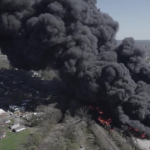A young tradesman is warning fellow engineered stone and asbestos workers after being diagnosed with scleroderma at age 25. Hak Kim was working in demolition and launched legal action against his former employer after he developed the silica-related illness and subsequently required a lung transplant.
He said, of working on the job that “During demolitions, nobody told you to wear a mask. They just said, ‘Okay, go in that room and start removing it’. And that’s what we did, we followed the order.”
“I didn’t know that I was exposed to silica because I’m working under asbestos removalist until I was diagnosed,” Hak said.
Mr Kim has taken legal action against his former employer for not providing a safe system of work and was awarded compensation.
Silica-related illness is on the rise in Australia, and the Australian Council of Trade Unions has recently called on the federal government to ban engineered stone products as engineered stone continues to rise in popularity.
Associate at Maurice Blackburn, Anita Arian, who represented Mr Kim in his compensation claim said the story is important because it shows that illness from workplace exposure can occur in industries outside engineered stone handling.
“We are seeing people in other industries such as demolition, people who work in quarries, miners and tunnellers, who are getting diagnosed with these conditions,” Ms Arian told the ABC. “And it’s not just silicosis, but other autoimmune conditions as well.”
Ms Arian explained that she believed there “was an emergence of workers and individuals diagnosed with this condition following the introduction of engineered stone. The reality is we’re bound to see a lot more because of the latency between exposure and development of their condition.”
“Where there are hazards in the workplace, they ought to be removed.”
CEO of Lung Foundation Australia, Mark Brooke, says it commends recent federal action where the government has considered a ban, but noted that more can be done.
“The one thing that we try to get across the community is if we know that something is a consumer product, a luxury product, in many cases to look good in your kitchen, and there’s no safe way of handling that, then would we put our mates risks at health at risk?” he said.
“I think we need to elevate the conversation, not just one about corporate or personal responsibility but a community’s responsibility.”
“We did it with asbestos, which is still seeing the legacy of using that product 50 to 100 years later.”



